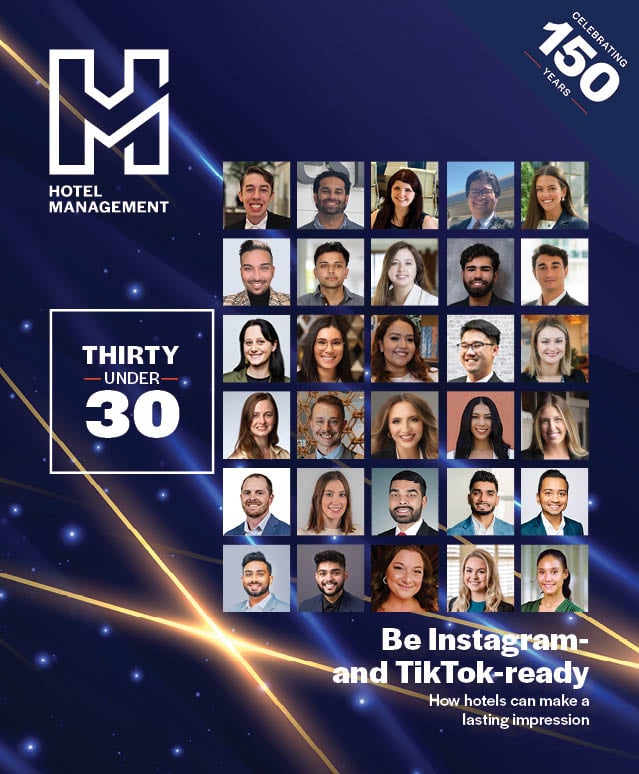CHARLOTTE, N.C. — Before BWH Hotels kicked off its annual convention at the city’s convention center, it held several educational forums on Sunday, including the Women & Diversity Forum. Approximately 100 women (and several male allies) gathered to learn about leadership opportunities for people who have traditionally been excluded from top roles.
The day began with a greeting from Joelle Park, who only joined the company last year as senior vice president and chief marketing officer. “We wanted to create a space where we, as leaders, could come together, could give and learn and lift each other up by sharing our own personal stories and hearing about those of others,” she told the attendees.
In a one-on-one conversation with Park, Jaraka Knuckles, senior manager of marketing for BWH Hotels, cited a recent McKinsey report that found only 29 percent of C-suite titles are held by women—but this is up from 17 percent in 2015. Women of Color only hold 7 percent of those roles, she added. “Studies show you have more productive outputs [and] richer deliverables when you have diverse viewpoints and perspectives,” Park said. “We can all ask, when we're given that opportunity, how can we bring others along with us in order to make the table bigger for underrepresented groups?”
Citing support she found from mentors in the past, Park emphasized the need for women and underrepresented groups to advocate for themselves and each other. “When there's a door being opened, then have the courage or take the time to consider if it's one that you should walk through,” she said. “And if the door isn't being opened for you, then break down that door—or ask for help in opening it.” At the same time, she added, leaders will sometimes have to ask colleagues or mentors for help, which can be difficult for people who feel that they need to be able to do everything on their own. “I realized that asking for help was a sign of courage in leadership, and it opened up connections,” she told the crowd. “I became a better leader because I was getting help and the advice from others.” At the same time, she added, when her colleagues saw her asking for help, they turned to her for support as well. “People were reciprocating.”
Park also encouraged the leaders in the room to listen to one another—and to their teams. “Sometimes we feel like, to be a leader, you have to be the one talking all the time,” she said. “The power of listening and then talking can be great leadership.”
Diversity in Leadership
The second major panel of the day focused on diverse leadership. Rachel Kooyman, BWH’s senior manager of loyalty marketing; Melissa Moore, GM of the BW Plus Waterbury — Stowe, Vt.; Danielle Pfeiffer, GM of the BW Gold Rush Inn, Whitehorse, Yukon, Canada; and David Antoniuk, manager of regional services for BWH’s District IV shared about obstacles they had overcome in rising to their current roles. Kooyman talked about working through mental health challenges, while Moore—who had a service dog on the stage with her—discussed her hearing loss and the discrimination she has faced. Antoniuk had moved from British Columbia to Central Florida and had been concerned that as a gay Canadian, he might not be accepted in the South. “I think I was getting in my own head, thinking I'm an outsider,” he said in hindsight. “Southern hospitality is real.”
Pfeiffer said that she had not faced “much personal discrimination,” but then noted how her professional successes are not celebrated in the same way that those of her male colleagues are. “When I became GM and began achieving higher [quality assurance] scores, breaking revenue records, the previous GM and our partnership company would make excuses for it, just diminish it down, instead of acknowledging the hard work and relationships I built,” she recalled. “Even our new COO met with me and had a discussion about how I needed to dress a certain way. I had to dress nice. I had to wear heels. [I] had to have my nails done in order to be taken seriously as a woman in power.”
Moore said that being vulnerable as a leader—and apologizing for mistakes—can help improve team relationships. “Saying ‘I'm sorry’ [is] powerful,” Pfeiffer said. “Showing that to others, I think, creates that trust and shows true leadership.”
Keynotes
The day also included two keynote addresses. Rashmi Airan, a former lawyer, talked about the price she paid when she did not ask the right questions during a complex real estate transaction and spent months in a federal prison for fraud. Rebuilding her life required acknowledging her mistakes and recognizing her responsibilities, she told the crowd, echoing Park’s observations about the need to ask for help and support from peers.
The final keynote was from Mercedes Blanco, who discussed unconscious biases and noted how they can affect a leader’s relationships with a team.


